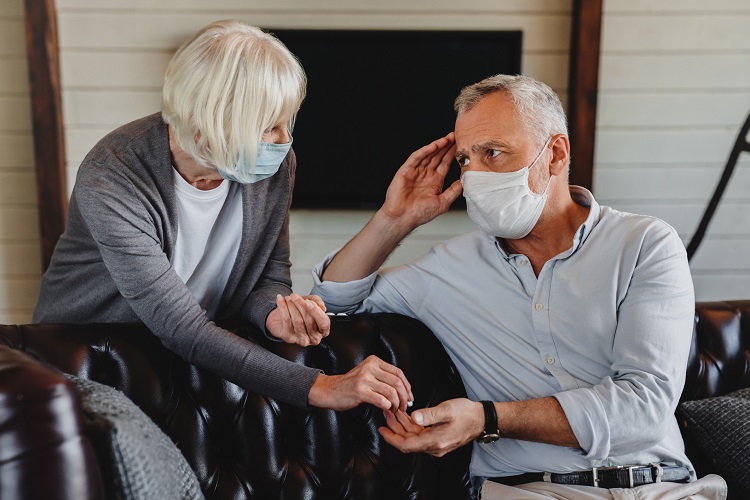
New clinical trial seeks to prevent transmission of COVID-19 between household members
August 20, 2020
Drug contains COVID-19 antibodies, which may keep the virus from entering your body’s cells.
By Mary Kate Brogan
While VCU Health has been on the cutting edge of potential treatments for COVID-19, researchers have continued to look for ways to prevent the disease.
One study, starting this week, is geared toward preventing the transmission of COVID-19 among members of the same household.
“Household contacts have about a 10 to 15% risk of getting COVID-19,” said lead investigator Michael Donnenberg, M.D., senior associate dean for research and research training at VCU School of Medicine. “If we could prevent that from happening, that could make a big impact on the entire pandemic.”
The clinical trial, run by Regeneron Pharmaceuticals, is underway at multiple sites across the United States, including VCU Health. The goal is to determine the safety and efficacy of a two-antibody drug cocktail to prevent COVID-19 infection among uninfected people who have had close exposure to a COVID-19 patient in the same household.
Produced in a lab, monoclonal antibodies are engineered to act as a substitute for your body’s natural antibodies. They can restore, enhance or mimic the immune system's attack on diseases.
“Preventive measures are a vital part of the fight toward ending this pandemic,” said Peter Buckley, M.D., interim CEO of VCU Health System, interim senior vice president of VCU Health Sciences and dean of the School of Medicine. “Our team members have been pursuing multiple avenues of research to prevent the spread of COVID-19 so we can return to normal more quickly and ultimately improve the health of our community.”
Drug is not a vaccine
While this investigational antibody drug is intended to prevent the disease, Donnenberg emphasizes that the drug is not a vaccine.
“Vaccines stimulate your immune system to make antibodies,” said Donnenberg, a professor of internal medicine, microbiology and immunology, biochemistry and molecular biology. “In this study, we’re testing whether giving you the antibodies can prevent the infection.”
Administering antibodies directly offers passive immunity, an immunity developed by giving the body the components it needs to be immune to a disease. Donnenberg said this approach is promising, because it means the body’s immune system doesn’t need additional time to generate its own antibodies.
“This passive antibody approach has been very successful in preventing many viral infections, including chicken pox and the hepatitis B virus,” Donnenberg said. “Within hours, you have levels of antibodies in your bloodstream and in your tissues that are potentially protective.”
While passive immunity acts more quickly than natural or vaccine-induced immunity, it does not last for years or even a lifetime, like natural immunity and some vaccines can. The antibodies delivered by injection last only a few months.
When a person tests positive for COVID-19, members of that person’s household may be eligible to participate in the clinical trial. They must meet certain criteria within 96 hours of the person’s diagnosis.
Another study looks at monoclonal antibodies as a treatment, not preventive agent
Another ongoing, multi-site Regeneron study involves the same set of monoclonal antibodies.
Led by VCU Health critical care physician Marjolein de Wit, M.D., the clinical trial uses antibodies as a treatment for COVID-19 in hopes of reducing the effects of the virus in patients. This trial is geared toward patients whose symptoms started within ten days prior to their hospitalization and who meet additional eligibility criteria.
“Our goal has been to identify ways to target the virus for patients in the earliest stages of COVID-19 to ensure their ability to fight off this disease,” said de Wit, also an investigator on the trial led by Donnenberg. “Generating the safety and efficacy data surrounding these antiviral antibody drugs is an important step toward potentially making more preventive and treatment options available to patients.”
VCU Health is the first site in Virginia for both of these clinical trials.
Since the pandemic began, VCU medical researchers have activated their teams and networks to bring several drug treatment trials to patients at the medical center. Treatment options help a doctor and patient create the best possible, individualized care, and trials help improve future care for all patients.



